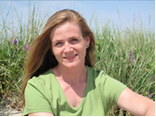
Publisher's Note: CapeWomenOnline Editor Katie O’Sullivan sifts through the rubble of the recent mammography debate.
Questioning the New Guidelines for Mammograms
by Katie O’Sullivan
On November 16, 2009, new mammogram recommendations were announced that shook the foundations of the medical community.
Following fast on the heels of October’s breast cancer awareness month, as well as in the midst of the contentious health care debate on Capitol Hill, the new guidelines shocked the nation by reversing twenty years of American Cancer Society recommendations.
The U.S. Preventive Services Task Force announced the new guidelines, apparently unaware of the highly politicized bees’ nest they were stirring.
They suggest that most women don't need mammograms in their 40s and should get one every two years starting at age 50 through age 74, and that women 75 and over don’t need to bother with the test any longer. They also said the value of breast exams by doctors is unknown, and breast self-exams have no value.
The task force concluded that many early and frequent screenings often lead to false alarms and unneeded biopsies, without substantially improving women's odds of survival. They added that their new guidelines are for the general population and not those at high risk of breast cancer because of family history or gene mutations.
The announcement left many people deeply confused about what was going on and whose advice to follow.
Left-wing and privacy advocates decried the “government task force” intervention into personal health matters. Right-wing bloggers and media railed against “Obamacare” and warned of more dire consequences if health reform should come to pass into law. Both sides self-righteously reminded people that breast cancer is the second leading cause of cancer deaths among women.
With swine flu and health reform already on her plate, it took Health and Human Services Secretary Kathleen Sebelius two days to issue a statement, trying to calm the waters. The first paragraph of her press release reads:
“There is no question that the U.S. Preventive Services Task Force recommendations have caused a great deal of confusion and worry among women and their families across this country. I want to address that confusion head on.
“The U.S. Preventive Task Force is an outside independent panel of doctors and scientists who make recommendations. They do not set federal policy and they don’t determine what services are covered by the federal government.”
Even now, this crucial part of her statement doesn’t seem to have been disseminated to the public. The task force is not a government panel. They are not setting policy for the government, or Medicare, or the private insurance companies. Changes to Medicare require an act of Congress, not a task force recommendation.
The U.S. Preventative Services Task Force is a research panel of doctors and scientists who make recommendations. Period. Secretary Sebelius even reiterated that no government policies have been changed and said she “would be very surprised if any private insurance company changed its mammography coverage decisions as a result of this action.”
Secretary Sebelius went on to say that there’s been debate for years about the age when routine mammogram screenings should start.
Although the American Cancer Society has pushed to have screening start at age 40, the panel's new recommendations are more in line with international guidelines which call for screening to start at age 50; the World Health Organization recommends the test every two years after age 50, and Britain says every three years.
The Secretary added that “Mammograms have always been an important life-saving tool in the fight against breast cancer and they still are today.
“Keep doing what you have been doing for years -- talk to your doctor about your individual history, ask questions, and make the decision that is right for you.”
Dr. Diana Petitti, the Vice Chairman of the task force, issued a statement the day after Secretary Sebelius, echoing the Secretary’s statement.
"So, what does this mean if you are a woman in your 40s?” she asked in her statement. “You should talk to your doctor and make an informed decision about whether mammography is right for you based on your family history, general health, and personal values."
CapeWomenOnline’s cancer columnist Kathy O’Keefe-Kanavos states that “Now, more than ever before in breast cancer history, it’s important for women to listen to their bodies concerning health. It’s time to discover our inner-voices and self-advocate for the tests we need in order to survive.”
At the ages of 44 and 49, both of Kathy’s breast cancers were missed by routine mammograms, but found by self-examination and confirmed by MRIs. Now with ten years of cancer survival under her belt, she works to help others get through this most difficult time through her writing and volunteer efforts at the R.A. Bloch Institute.
One of the statistics cited by the task force was the high rate of false positives over a ten year period – according to Kathy, nearly 1 in 3 women received a false positive mammogram, creating anxiety and necessitating further tests and even biopsies. The rate of missed cancers on mammogram screenings was 1 in 10.
Kathy feels that “the fear of a false positive is nothing compared to the panic attack associated with a missed positive.” Despite what the task force now recommends, she believes that “a woman’s first line of detection should be self examination.”
She adds, “Rather than systematically relying on mammograms, women should be looking at more reliable options.” She advocates for ultrasound and sonar technologies, which she says are more reliable means of detection.
In the meantime, there is no need to panic. As Secretary Sebelius advises, keep doing what you’re comfortable with. Talk to your doctor and find the options that are right for you. And remember, you are your own best advocate.
